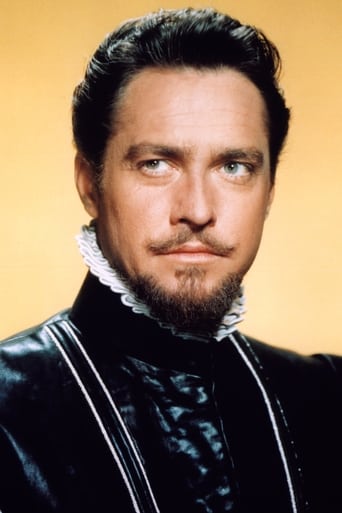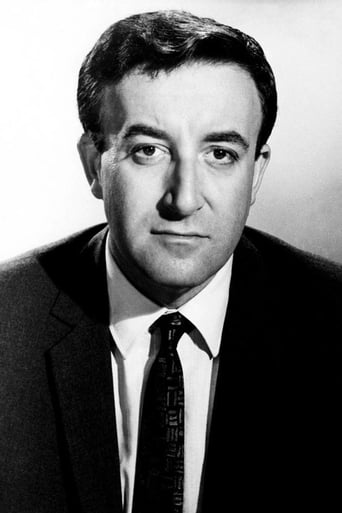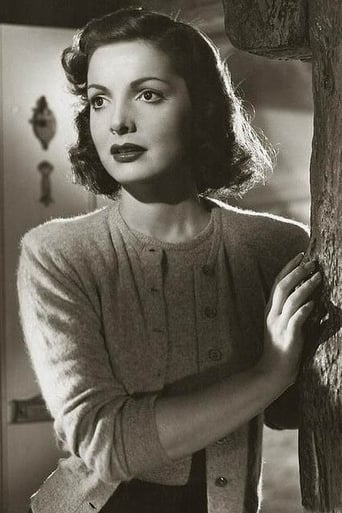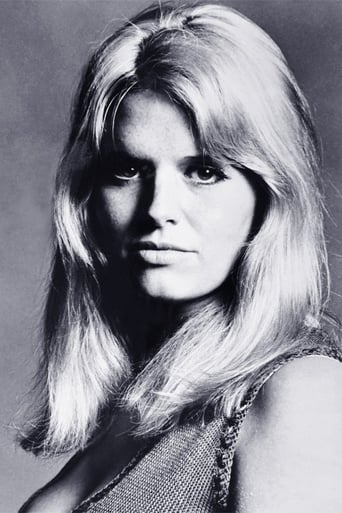Exoticalot
People are voting emotionally.
Mjeteconer
Just perfect...
Pluskylang
Great Film overall
Roxie
The thing I enjoyed most about the film is the fact that it doesn't shy away from being a super-sized-cliche;
Leofwine_draca
NEVER LET GO is such a good British crime picture that I'm surprised more people don't know about it. The main character is a rather weak and weedy man, played by a cast-against-type Richard Todd. He's a lowly salesman whose car is stolen by a young thug at the film's outset, leading him on to an obsessive quest to get it back. The trail soon leads to a garage run by an unscrupulous crime boss, played by Peter Sellers, also playing against type. Both Todd and Sellers are making real efforts here in roles neither are used to and both are quite excellent. The film's unusual storyline builds on the suspense and keeps the viewer guessing as the story progresses, and it all builds to a climax which for once it worth the wait. A fine supporting cast includes David Lodge as a heavy, Noel Willman as a detective, Elizabeth Sellers as the stressed-out wife, Mervyn Johns as an informant, Adam Faith as a thug, and Carol White, who would go on to fame in POOR COW.
MartinHafer
While the star of this film technically is Richard Todd, Peter Sellers' supporting performance dominates the film and it's no surprise that the DVD features Sellers on the cover, not Todd. It's one of the better performances of his career--and, interestingly, it's not at all comedic but a VERY gritty and serious role.The film begins with a working man (Todd) leaving work--only to discover that his car's been stolen. He goes to the police but after a couple days there doesn't appear to be any chance he'll get it back--and it's not insured. Todd is a very mild-mannered man and not the sort you'd expect to do anything about the crime, but his car is needed for his job and he won't let it rest. So, he starts trying to find leads on his own--and repeatedly he nearly gets himself killed. Yet, for once this mild-mannered man is NOT going to just back down--he will follow this as far as he can and the consequences be damned. Through the course of Todd's investigations, the trail leads to a truly horrible man (Sellers). On the surface, Sellers seems sophisticated and mild-mannered himself. However, he is a very violent bully--and this comes out with the least provocation. What's to happen next? Tune in to this excellent film to see for yourself--just be forewarned...it's amazingly brutal for 1960--so brutal the Brits gave it what is equivalent to a restricted rating!As I said, Sellers is at his best here. Wearing bulky clothes (and perhaps lifts to make him look taller), he looks beefier and plays a great heavy. His violent and sadistic routine is mesmerizing--and it was hard to believe this is the same guy who made a career out of making people laugh. Here, he's malevolent and cruel--and very effective. Now all this does NOT mean Todd isn't quite good as well--he is. But even in turning in a dandy performance himself, he is overshadowed by the malevolent Sellers. The sum effect of both of them is quite compelling--making a simple and inexpensive film much better than you'd ever expect. If you like to see excellent acting and characters, then see this one.
funkyfry
This is a nice little picture, kind of a commentary on crime, which features Richard Todd as a perfume salesman who doesn't take kindly to having his new Impalia stolen by a gang lead by Peter Sellers. Although there may be elements of dark comedy, this is basically a straightforward crime drama and all the principals are very effective, particularly Sellers.You could basically see this film as a modern urban variation on "High Noon." The police and the man's wife eventually decide that going after Sellers is far too dangerous, but as the title implies this man will just not let go of his precious car. He goes so far as to bring danger down upon his own household, when Sellers tracks him there and pushes his wife around. Finally he has to have a man-to-man showdown with the villainous Sellers, and the men beat each other nearly to death.I've never really seen Sellers quite as evil as he was in this film. He pushes women around, he robs from innocent people with no remorse, and he brutally punishes his underlings when they disappoint him. He attacks the role with great relish, like a man who enjoys doing bad things. This was Sellers' least mannered performance to date, among the films I have seen. In contrast to some of his later films where his excellent performances stand out like a sore thumb compared to the rest of the film, this one serves the story and the film before all else.It's an interesting comment on materialism in our society, although I don't know if it plays out today exactly as it was intended. I found myself becoming quite aggravated with the good guy and wishing that Sellers could get away with it, because I was almost as infuriated with him as the bad guy. There's also a juvenile delinquent couple that just seems thrown in to give the story "modern relevance." But all in all this is a very memorable movie and I'm surprised that it's not discussed more often.
Steve Pyott (spyott)
I've now seen this film a few times when it gets shown late at night on ABC TV here in Australia and it is still compelling viewing. It is a classic example of the gritty working class social reality/suspense genre in a post Angry Young Men gloomy London setting with a superb cast all giving stellar performances, particularly Peter Sellers as the petty vicious crook (one of his best roles), Elizabeth Sellars as the long suffering wife, Carol White, Mervyn Johns and Adam Faith. The casting of Richard Todd in the lead role of the down-trodden but defiant cosmetics salesman who wants to show everyone he can succeed is superb, inspired and brilliant, particularly given that he was normally cast as heroic and successful types, such as officers.It is impossible not to identify with the personal struggle against the injustice of the very difficult situation in which Todd's character has found himself and that was not of his own making. Although the film has the typical feel of the late 50s/early 60s era in British urban society (which I love, by the way!), I found his work situation, which is at the heart of the story, and the way he tried to deal with it achingly convincing and clearly reminiscent of more modern eras, particularly with the constant threat of up and coming younger, brighter and sharper sales staff being used by the management as an unsubtle threat to his position if he does not improve his sales figures. I am sure anyone who has ever been paid on a sales commissions basis in a competitive product or service field would be able to identify easily with that situation.His persistent determination to deal with the unsavoury types he thinks are responsible for the theft of his car in the face of police indifference and try to get back everything that he has lost, while everyone is telling him to just give up, is portrayed very convincingly and the final ending and resolution with the fight scene in the garage is utterly convincing and satisfying. I strongly recommend this film and I have always found it difficult to understand why Richard Todd never became the huge star I believe he deserved to be.





